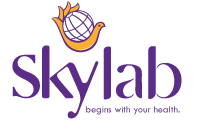No products in the cart.: ₹0.00
The basics of Alzheimer’s disease and how to adapt your lifestyle to accommodate someone with the disease.
Memory loss, a reduction in cognitive function, and difficulties in daily life are hallmarks of Alzheimer’s disease, a degenerative brain disorder. It primarily affects the elderly and is the leading cause of dementia. It is linked to the accumulation of aberrant protein deposits in the brain, which in turn causes mental decline and, ultimately, hinders day-to-day functioning.
Alzheimer’s illness has been known about for quite some time. In reality, it has been around for more than a century. In 1906, Dr. Alois Alzheimer was the first to identify the disease after examining the brain of a woman who had died from a rare mental disorder. Thanks to Dr. Alzheimer’s pioneering research, we know that amyloid plaques and neurofibrillary tangles in the brain are hallmarks of Alzheimer’s disease. Even though scientists have learned a lot about the disease over the years, there is still a lot left to discover.
On this Alzheimer’s Awareness Day, we hope to learn more about the disease by looking at its origins, symptoms, risk factors, the value of early diagnosis, and some useful advice for making your home more comfortable for someone with the disease.
Memory loss and other Alzheimer’s symptoms
Early detection and treatment of Alzheimer’s disease require a thorough understanding of the disease’s symptoms. The condition develops in waves, with each wave bringing increasingly severe symptoms. The most typical signs and symptoms are:
Loss of memory
Forgetting things, especially recent discussions and occurrences, is one of the earliest warning symptoms.
Disorientation
A person’s sense of time, location, and identity may all become muddled.
Problems in understanding one another
Common language difficulties include a lack of vocabulary and a tendency to repeat oneself.
Poor discretion
People can have difficulty deciding on actions or finding solutions to problems.
Alterations in temperament
Changes in personality, impatience, and mood are possible.
Trouble performing routine activities
Simple activities like getting dressed or preparing a meal may become difficult.
Possible Dangers
There are a number of risk factors that increase the likelihood of having Alzheimer’s disease:
- Age is the most important indicator of danger. After the age of 65, the danger multiplies dramatically.
- Having a close relative with Alzheimer’s increases your chances.
- Mutations in particular genes are known to increase susceptibility.
- High blood pressure, high cholesterol, and diabetes are all risk factors for cardiovascular disease.
- Poor food, inactivity, smoking, and heavy alcohol use are all lifestyle variables that can play a role.
- The value of prompt diagnosis
The importance of an early Alzheimer’s diagnosis cannot be overstated.
While there is currently no treatment that will reverse the effects of Alzheimer’s disease, there is hope that catching the disease early can help alleviate some of the symptoms.
Preparation: Getting a diagnosis early on helps people and families prepare for the future, both legally and financially.
In terms of quality of life, early diagnosis allows people to make the most of their remaining cognitive abilities.
An early diagnosis facilitates participation in clinical trials for potential therapies and treatments.
How to Make Your House Alzheimer’s-Friendly
- Improving the quality of life for people with Alzheimer’s disease requires making necessary changes to the home environment. Some advice is as follows:
- Prioritize safety by removing potential trip hazards, installing railings, and making use of non-slip matting.
- Make it simple to discover what you need by clearly labeling cabinets and drawers.
- Maintaining a daily routine can help you feel more secure and at ease.
- Helpful memory aids include calendars, reminder notes, and electronic devices.
- Eliminate unnecessary items and streamline your home to improve clarity.
- Puzzles, games, and other mental exercises should be encouraged.
- Use color contrast to make it easier for people to tell things apart. Place colorful dishes and cutlery on a white tablecloth, for instance.
- Safeguard dangerous materials by stowing them away in a locked cabinet or safe. This includes things like cleaning solvents, prescription drugs, knives, and guns.
- Add support and safeguard against falls by setting up handrails and grab bars in lavatories and corridors.
- Labeling key areas with bold, legible signs or photographs makes it easier to find places like the restroom and the bedroom.
- Maintain uniform illumination to provide safety and comfort. Put in some nightlights so no one gets lost or frightened.
- Having photos of loved ones and other personal artifacts about the house can help bring back fond memories and instill a feeling of safety.
- Reduce background noise and eliminate potential sources of stress. Decorate with mild tones and stay away from chaotic prints.
- Gardening and outdoor space: If at all possible, designate an outdoor area that is both secure and well-maintained as a place to unwind and engage in low-impact pursuits like gardening.
- Respite care and other forms of caregiver assistance are essential in preventing caregiver burnout and ensuring the highest quality of care for patients.
- Evaluation of the home environment for potential risks or necessary alterations should be performed on a regular basis because the individual’s condition may vary over time.
Individuals and families affected by Alzheimer’s disease can improve their quality of life and cope with the disease’s progression with the help of early diagnosis, a caring living environment, and thorough management. Let’s do everything we can to help folks with Alzheimer’s today, Alzheimer’s Day.
| Customer Friendly | Doctor care at home | Affordable Price | Convenience | Online appointment | Home Collection Available | Personalized Health checkup | Laboratory in Kuravankonam | Laboratory in Akkulam | Laboratory in Pattom | Laboratory in Vellayambalam | Laboratory in Sasthamangalam| Laboratory in Muttada | Laboratory in Kesavadasapuram | Laboratory in Kazhakuttam | Near Asset Homes| Near Hycinth | Near Artech |Near Nikunjam | Doctor Service available |Laboratory in Kovalam | Laboratory in Kowadiar | Laboratory in Ambalamuk | Laboratory in Vazhuthacad | Laboratory in Jagathi | Laboratory in Poojapura | Laboratory in Kanakanagar | Laboratory in Pottakuzhy | Near Keys Hotel | Near Kunnil Hyper Market | Laboratory in Thiruvallom | Near Leela Hotel | Near Karikakom Temple | Near Lulu Mall | Laboratory in Vizhijam | Laboratory in Sangumukham | Laboratory in Kochuveli | Nursing care |


